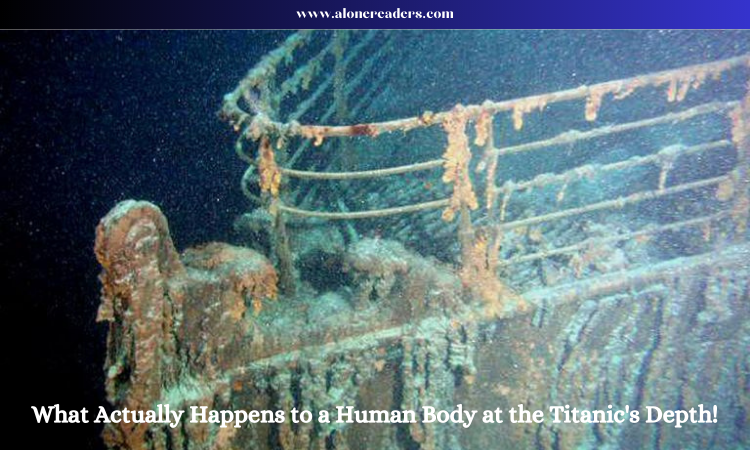
The North Atlantic Ocean's frigid seas, where the Titanic sunk, are as foreign and hostile as the surface of another planet. However, what precisely occurs to the human body in these dangerous conditions, more than two miles under the ocean's surface? The explanation is found in the unique world of deep-sea physics, which is characterized by tremendous pressure and temperature.
The Titanic sank in the so-called abyssal zone, which is characterized by constant darkness, extremely low temperatures, and pressure thousands of times greater than at sea level. No human being could possibly survive there on their own, much less travel there without specialized equipment.
The Physics of pressure or the crushing pressure:
In everyday usage, pressure is the application of force to an area. That is the air pressure in our typical atmosphere. But because of the weight of the water above, as you dive underwater, the pressure rises. The pressure roughly increases by 1 atmosphere (atm), or about 14.7 pounds per square inch (psi), for every 10 meters (33 feet) you drop.
At a depth of around 3,800 meters (12,500 feet), the Titanic wreck is found. Surprisingly the pressure there is 380 atmospheres or roughly 5,600 psi. That would be like having a huge elephant standing on every inch of your body.
Breathing at Titanic depths:
Due to extreme pressure, breathing becomes impossible at Titanic depths. The gas exchange would not be possible since the remaining volume of air in the lungs would be squeezed.
The biological impact:
The human body is not built to withstand such harsh conditions. Extreme pressure, cold temperatures, and lack of oxygen cause physiological systems to start failing.
The effects on the human body’s structure:
Significant structural effects on the body may also result from the extreme pressure at the Titanic's depths. As an illustration, water pressure may push blood into the heart, causing cardiac collapse. Decompression sickness, also known as "the bends," is a fatal illness that can result from the body absorbing nitrogen.
How it affects body temperature:
Temperatures in the deep water drop to barely above freezing. In these circumstances, hypothermia develops quickly. The body's natural temperature falls, which causes the metabolic processes to slow down, the loss of consciousness, and ultimately death.
Final Word
The Titanic is currently immersed in strange and dangerous underwater depths. Despite being dangerous to human life, the extreme circumstances have stimulated inquiry and invention. Despite the tragic circumstances surrounding the Titanic disaster, it has significantly improved our knowledge of the deep ocean and its effects on the human body.